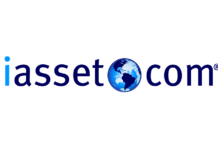Less than one week after IDC released a
study sponsored by Microsoft Corp., detailing the risks of using counterfeit
software, and six weeks after Microsoft released its own forensic analysis of
counterfeit discs, Microsoft announced a series of criminal and civil actions
taken against alleged dealers of counterfeit software around the world.
This announcement marks the largest enforcement effort by Microsoft and the
first time the company has focused its efforts worldwide to bring legal action
against online dealers. The 55 legal actions include 15 in the United States,
10 in Germany, 10 in the Netherlands, five in France and five in the United
Kingdom, as well as proceedings in Argentina, Australia, Belgium, Korea,
Mexico and Poland.
The cases are against sellers who allegedly have misused their eBay or
other auction-site accounts to sell counterfeit software to unsuspecting
consumers and businesses. Many of the defendants received warnings for
infringing behavior before the legal action, including written cease and
desist orders and/or removal of their auctions by the online host. In each
case subsequent investigation and/or test purchases revealed copyright and
trademark infringement by the defendant seller.
Many of the allegedly infringing sellers were identified through tips
submitted from consumers through Microsoft’s Windows Genuine Advantage
(WGA) program. As part of the WGA, consumers can verify whether their
Microsoft software is genuine, and in the process receive product
downloads, Windows updates and other special offers. The WGA program is
designed to differentiate the value of genuine Windows software from non-
genuine, and to educate consumers about the potential risks associated with
counterfeit software. More program information is available at
http://www.microsoft.com/genuine .
“Counterfeit software is defective and dangerous because counterfeiters
tamper with the genuine software code, which leaves the door open to identity
theft and other serious security breaches,” said Matt Lundy, a senior attorney
at Microsoft. “It is simply not worth putting your personal and confidential
information at risk to save a few dollars on software; it can cost much more
in the long run. For our part, Microsoft is committed to taking the necessary
legal action to protect consumers worldwide from the dangers of counterfeit
software.”
Microsoft launched the Genuine Software Initiative earlier this year, and
since then has intensified its efforts to protect consumers and channel
partners from the risks of counterfeit software through an increased focus on
education, engineering and enforcement. “Every year, millions of consumers are
victimized by unknowingly buying counterfeit software,” said Joe Peterson,
corporate vice president of the Market Expansion Platforms Group at Microsoft.
“This is a serious problem that requires a significant commitment to help
solve. We’re making that commitment as we invest in efforts to show people
what to look for and what to avoid, innovations to better protect the
software, and legal action to protect consumers when necessary.”
New Study Details Broader Effects of Software Piracy
According to the new study from IDC, acquiring and using counterfeit
product keys, pirated software, key generators and crack tools for Windows XP
and the Microsoft Office system may increase the risk of exposure to viruses,
worms and other damaging code, including spyware, Trojan horses and modified
code. In addition, IDC’s study noted that purchasing software through online
auctions often results in the acquisition of counterfeit software containing
tampered-with code or other known vulnerabilities. The study can be found at
http://www.microsoft.com/athome/security/update/wga/default.mspx .
The IDC study comes on the heels of a forensic analysis of counterfeit
Windows XP disks conducted by Microsoft in June 2006, which found that 34
percent of the disks could not be installed on a computer, and another 43
percent contained additional programs, or binary code, that are not part of
genuine Microsoft Windows. The tampered code, according to Microsoft, could
result in trouble such as denial-of-service attacks, bypassed password
protections and application memory corruption.
John Gantz, senior vice president of IDC, said that IDC’s new study and
other existing evidence should serve as a warning to consumers. “Our research
confirmed that searching for and finding counterfeit software on the Internet
can be the cyberspace equivalent of driving a car with defective tires,” Gantz
said. “It is more important than ever for users to educate themselves about
these dangers. Our findings underscore the simple fact that there are real
costs in the form of increased risks to security and personal data that can
easily outweigh any perceived savings from using counterfeit software.”
Also reported in the study, Microsoft intervenes in about 50,000 eBay
software auctions a year that are deemed to be infringing copyright. In tests
conducted by Microsoft of 115 copies of physical media purchased on eBay, 39
percent were found to be counterfeit, and another 12 percent contained
software that was either counterfeit or had been tampered with. Overall, the
study found, the chances of purchasing genuine, legally licensed Microsoft
software on eBay is less than 50 percent.
IDC estimates that the cost for an organization to recover from even a
single incident of malicious software on a single workstation can run more
than $1,000 (U.S.). The cost of lost or compromised data can run into the tens
of thousands of dollars per incident for many businesses.












